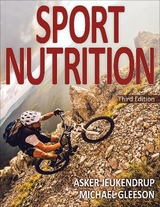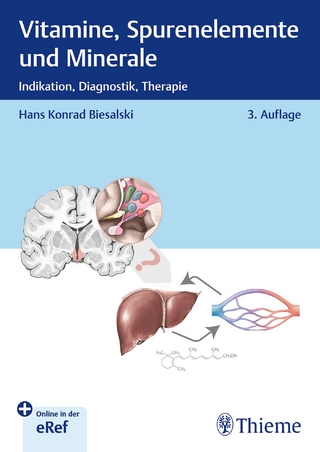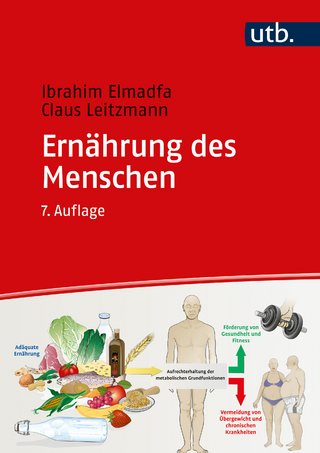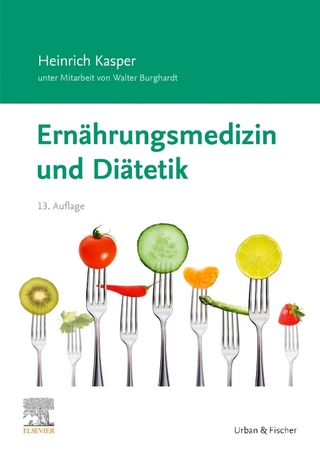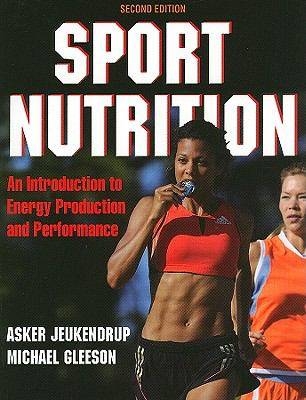
Sport Nutrition
Human Kinetics Publishers (Verlag)
978-0-7360-7962-4 (ISBN)
- Titel erscheint in neuer Auflage
- Artikel merken
Understand the science behind sport nutrition with the UK's top experts. The new edition of "Sport Nutrition" presents the principles, background and rationale for current nutrition guidelines specifically for athletes. The chapters run in a logical order that will help instructors deliver a better course and spend less time in preparing lectures and tutorials. Meanwhile "Sport Nutrition" contains updated and expanded information to keep students current (and interested) on the latest findings in sport nutrition. New chapters include information on training adaptations, effects of nutrition on over training, and new information on weight management and body composition for athletes. There is new research and recommendations for carbohydrate intake during training. An expanded discussion on the role of protein in strength and endurance exercise training add to the new content. Each chapter includes learning objectives, key terms and key points to help readers retain the information. The text presents not only nutrition principles but also the exercise biochemistry involved and the energy needs of athletes.
Readers will better understand how supplements may be used in an athlete's diet, and they will learn how to separate fact from fallacy regarding the claims of the numerous nutritional supplements available today. More than a simple prescription of recommendations, this second edition ensures that students will be prepared for advanced study or future careers, and professionals will gain the knowledge and confidence to provide sound advice to athletes.
Asker Jeukendrup, PhD, is a professor of exercise metabolism at the University of Birmingham. He is an active researcher credited with many of the new findings in sport nutrition in the past decade. He is has worked with many elite athletes and clubs, including Chelsea Football Club and UK Athletics. Michael Gleeson, PhD, is a professor of exercise biochemistry at Loughborough University. Gleeson has worked with numerous world-class athletes and professional football clubs. He has a particular expertise in the effects of exercise, training and nutrition on immune function.
Chapter 1. Nutrients Function of Nutrients Carbohydrate Fat Protein Water Vitamins, Minerals, and Trace Elements Phytonutrients Chapter 2. Nutrients and Recommended Intakes Essential Nutrients Development of Recommended Intakes Current Recommended Intakes Practical Guidelines for a Balanced Healthy Diet Food Labels Analyzing Dietary Intake Chapter 3. Fuel Sources for Muscle and Exercise Metabolism Subcellular Skeletal Muscle Structure Force Generation in Skeletal Muscle Fiber Types Energy for Muscle Force Generation Fuel Stores in Skeletal Muscle Regulation of Energy Metabolism Metabolic Responses to Exercise Metabolic Adaptations to Exercise Training Chapter 4. Energy Energetic Efficiency Measuring the Energy Content of Food Measuring Energy Expenditure Components of Energy Expenditure Energy Balance Chapter 5. Gastric Emptying, Digestion, and Absorption Anatomy of the Gastrointestinal Tract Regulation of the Gastrointestinal Tract Digestion Absorption Function of Bacteria in the Colon Regulation of Gastric Emptying Gastrointestinal Problems During and After Exercise Chapter 6. Carbohydrate History Role of Carbohydrate Recommendations for Carbohydrate Intake Carbohydrate Intake Days Before Competition Carbohydrate Intake Hours Before Exercise Carbohydrate Intake 30 to 60 Minutes Before Exercise Carbohydrate During Exercise Carbohydrate After Exercise Chapter 7. Fat Fat Metabolism During Exercise Limits to Fat Oxidation Fat as a Fuel During Exercise Regulation of Carbohydrate and Fat Metabolism Fat Supplementation and Exercise Effect of Diet on Fat Metabolism and Performance Chapter 8. Protein and Amino Acids Amino Acids Techniques to Study Protein and Amino Acid Metabolism Protein Requirements for Exercise Training and Protein Metabolism Effect of Protein Intake on Protein Synthesis Amino Acids as Ergogenic Aids Protein Intake and Health Risks Chapter 9. Water Requirements and Fluid Balance Thermoregulation and Exercise in the Heat Effects of Dehydration on Exercise Performance Mechanisms of Heat Illness Effects of Fluid Intake on Exercise Performance Daily Water Balance Fluid Requirements for Athletes Chapter 10. Vitamins and Minerals Water-Soluble and Fat-Soluble Vitamins Recommended Intakes of Vitamins Macrominerals and Microminerals Recommended Intakes of Minerals Critical Micronutrient Functions Assessing Micronutrient Status Exercise and Micronutrient Requirements Ergogenic Effect of Micronutrient Supplementation Recommendations for Micronutrient Intake in Athletes Chapter 11. Nutrition Supplements Nonregulation of Nutrition Supplements Critical Evaluation of Nutrition Supplements Studies Androstenedione Bee Pollen Beta Alanine and Carnosine Beta-Hydroxy Beta Methylbutyrate Boron Caffeine L-Carnitine Choline Chromium Coenzyme Q10 Creatine Dehydroepiandrosterone Fish Oil Ginseng Glycerol Inosine Lactate Salts and Polylactate Lecithin Medium-Chain Triacylglycerol Pangamic Acid Phosphatidylserine Phosphorus Pyruvate (and Dihydroxyacetone) Sodium Bicarbonate Sodium Citrate Vanadium Wheat Germ Oil Contamination of Nutrition Supplements Chapter 12. Nutrition and Training Adaptations Training Adaptations Signal Transduction Pathways Starting a Signaling Cascade Secondary Signals Nutrition Effects on Training Adaptations Overtraining Chapter 13. Body Composition Optimal Body Weight and Composition Body Composition Models NormalRangesof Body Weight and Body Fat Chapter 14. Weight Management Body Weight and Composition in Different Sports Genetics Energy and Macronutrient Intake Regulation of Appetite Effect of Exercise on Appetite Physical Activity and Energy Expenditure Dietary Weight-Loss Methods Exercise for Weight Loss Decreased Resting Metabolic Rate With Weight Loss Weight Cycling Gender Differences in Weight Loss Practicalities of Weight Loss for Athletes Defining the Strategy Chapter 15. Eating Disorders in Athletes Types of Eating Disorders Prevalence of Eating Disorders in Athletes Risk Factors Effects of Eating Disorders on Sports Performance Effects of Eating Disorders on the Athlete's Health Treatment and Prevention of Eating Disorders Chapter 16. Nutrition and Immune Function in Athletes Functions of the Immune System and Its Cellular Components General Mechanism of the Immune Response Effects of Exercise on the Immune System Nutritional Manipulations to Decrease Immunodepression in Athletes Mechanisms of Nutritional Influences on Immune Function in Athletes Conclusions and Recommendations Appendix A. Key Concepts in Biological Chemistry Relevant to Sport Nutrition Appendix B. Unit Conversion Tables Appendix C. Recommended Daily Allowances for North America Appendix D. Reference Nutrient Intakes for the United Kingdom Appendix E. Recommended Dietary Intakes for Australia Glossary References Index
| Zusatzinfo | 248 black & white illustrations, 19 black & white halftones |
|---|---|
| Verlagsort | Champaign |
| Sprache | englisch |
| Maße | 216 x 279 mm |
| Themenwelt | Sachbuch/Ratgeber ► Sport |
| Medizin / Pharmazie ► Gesundheitsfachberufe ► Diätassistenz / Ernährungsberatung | |
| ISBN-10 | 0-7360-7962-9 / 0736079629 |
| ISBN-13 | 978-0-7360-7962-4 / 9780736079624 |
| Zustand | Neuware |
| Informationen gemäß Produktsicherheitsverordnung (GPSR) | |
| Haben Sie eine Frage zum Produkt? |
aus dem Bereich
